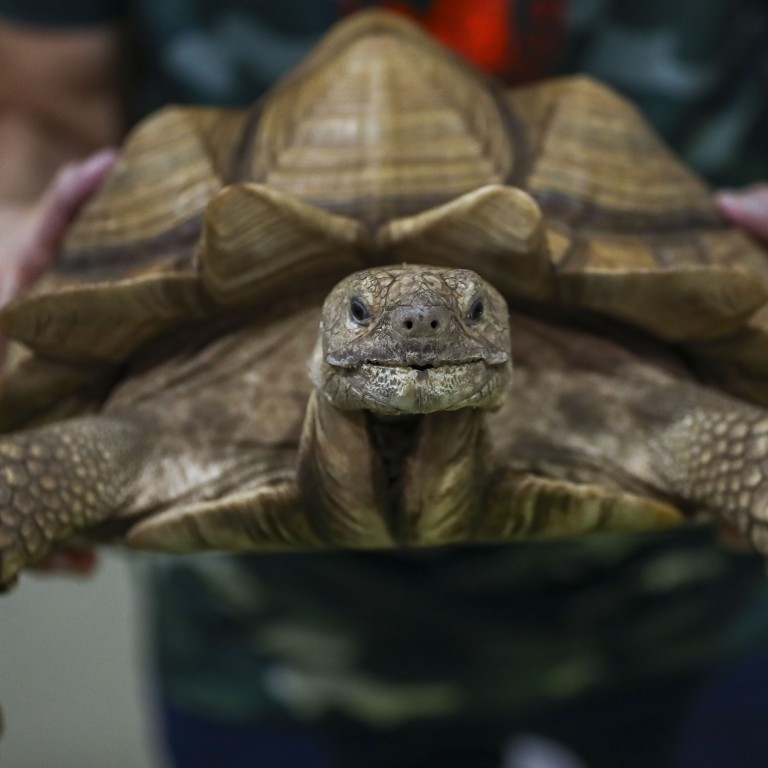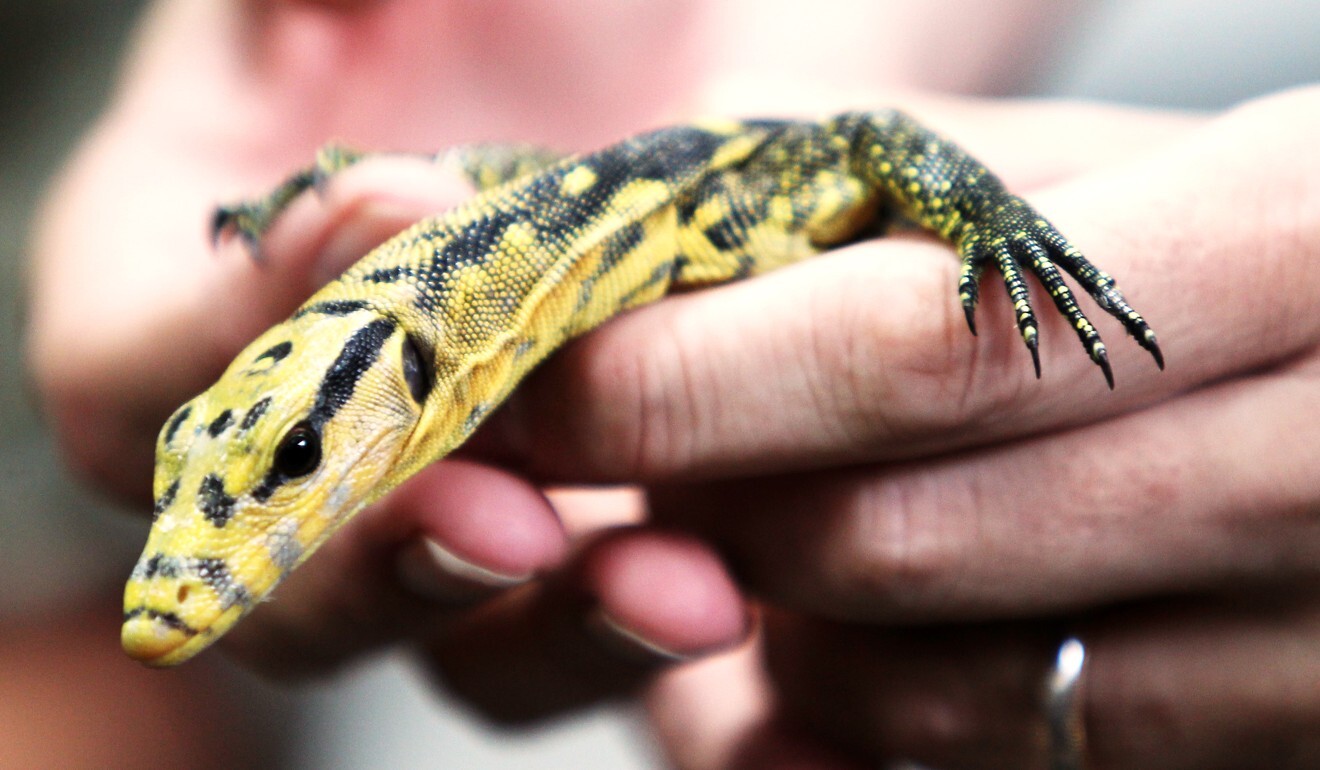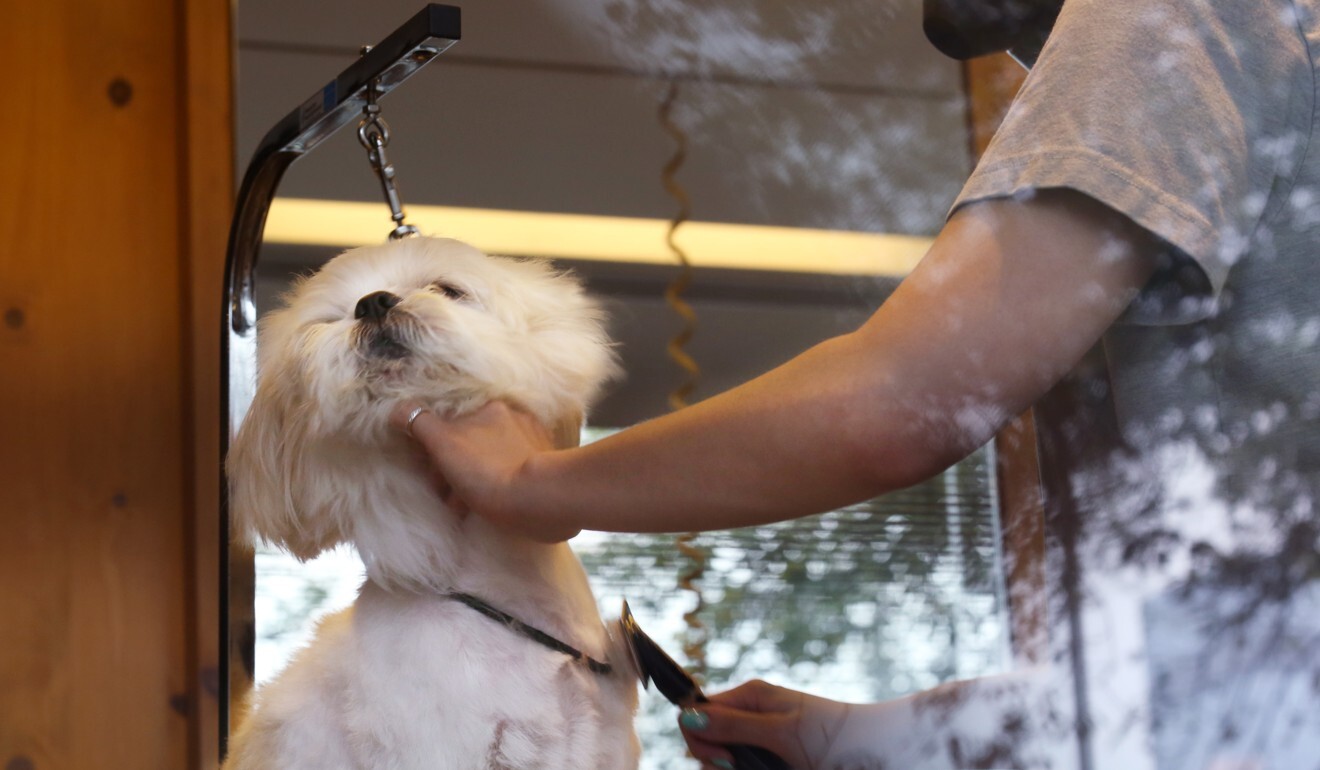
Dead lizards and tortoise put up for sale: pet owners take grievances with animal service companies to consumer watchdog
- Complaints filed with Consumer Council allege pet companies mishandled relocation of animals
- In one case, a pet shop sold a young Maine Coon cat for HK$14,280 only for the animal to later die from disease
A pet owner hired a company to help relocate two beloved lizards and a tortoise only for the first two creatures to wind up dead and the third being offered up for sale, according to a complaint filed with Hong Kong’s Consumer Council.
The incident was just one of several allegations filed with the watchdog in the first nine months of the year claiming pet companies had mishandled the relocation of animals.
In the case of the lizards and the tortoise, the complainant claimed to have paid the Hong Kong pet service company more than HK$10,000 (US$1,290) to move the animals to Taiwan, but they never arrived.

A friend based in the financial hub later discovered the tortoise being offered for sale by the company. Six months after the complaint was filed, the company admitted the two lizards had died.
The council tried to reach out to the company but to no avail. The complainant has lodged a complaint to the Customs and Excise Department and is considering filing a claim for damages.
Moving a family pet across borders is difficult in the best of circumstances but the travel restrictions enacted to combat the coronavirus pandemic has made the process even more challenging, with some companies resorting to illegally smuggling animals. In August, more than 40 pet cats and dogs were found washed up dead on Hong Kong beaches after being dumped by suspected smugglers.
“The council urges pet service providers not to hastily provide services to earn quick money due to the growing demand for pet relocation services, resulting not only in the failure to provide the service as pledged but also putting the animals at risk,” said Professor Nora Tam Fung-yee, chairwoman of the Consumer Council’s research and testing committee on Thursday.
Pet owners seeking whereabouts of beloved animals after gruesome smuggling case
Tam suggested pet owners obtain all the relevant information about a destination’s requirements for emigrating animals before hiring a relocation service.
In another anonymous case filed to the watchdog, a pet shop was suspected of mixing up the gender of a kitten and intentionally selling a sick animal. A consumer bought the four-month-old Maine Coon cat for HK$14,280 but it fell ill when the new owner took it home.
A veterinary surgeon found the kitten was a female rather than male as advertised and other details did not match immunisation records provided by the pet shop. The kitten was found to have peritonitis – an infection in the abdominal cavity – and died.
The complainant suspected the pet shop might have swapped a sick kitten with the one she intended to purchase. But the company denied the allegations and refused to make a refund.

In another case, a woman’s poodle was injured while being groomed at a pet salon. A veterinary surgeon suggested using anaesthesia to suture the wound but the owner declined as the animal was already 13 years old.
The owner accused the grooming company of negligence in a complaint filed with the Consumer Council, after which the firm admitted the injury was an accident.
Tam warned that pet traders were obliged to ensure the accuracy of the information listed on accompanying documents, or risk violating local trade ordinances. She also reminded consumers to obtain accurate immunisation records and receipts provided by the trader to prove the pet’s identity.
The council received four complaints relating to pet services between January and September compared to eight during the same period a year ago. There were 11 such complaints in 2017, followed by 14 in 2018.

